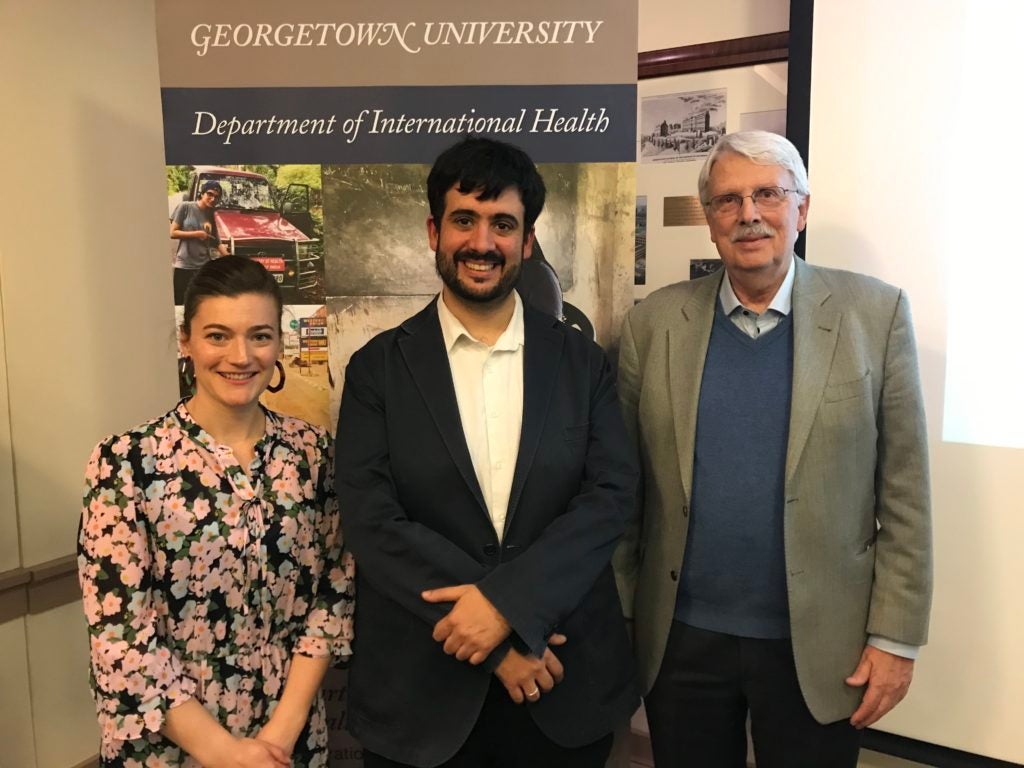Department Hosts Latin American Urban Health Expert
Posted in News Story

Dr. Usama Bilal, Assistant Professor at the Dornsife School of Public Health at Drexel University, addressed the Georgetown community last month. In presenting on “Health and Health Inequalities in Cities of Latin America,” Dr. Bilal provided an introduction to the Salud Urbana en América Latina (SALURBAL) Project and kindly shared preliminary results in patterns of life expectancy and urban mortality across cities in Latin America.
After introducing the audience to the SALURBAL Project, its team, goals and processes, Dr. Bilal described some of the Project’s evaluation elements to illustrate the complexities and challenges of evaluating the effects of policies and interventions on health, equity, and the environment in urban settings. To address working in such diverse environments, the SALURBAL project and Dr. Bilal employ systems-thinking and simulation models to evaluate links between the urban environment and health, and then plausible policy impacts.
A large challenge in conducting research in urban areas is identifying the boundaries of a city, sub-cities, and neighborhoods within a city. At the city level, Dr. Bilal presented preliminary results regarding life expectancy and mortality profiles between 363 cities in nine Latin American countries, and shared life expectancy within six large cities at the administrative unit level (comunas, municipios, distritos, cantones). Dr. Bilal visualized the results in a way that made comparisons across cities in the same country, and the region, clear and striking in what they displayed. The patterns showed cities with larger proportions of mortality due to communicable diseases, cancer, or violent injuries. These results were then plotted against a social environment index, showing some expected results such as a rise in cancer and non-communicable diseases as the social environment index increases but some surprising results, such as unintentional and violent injuries being responsible for higher mortality levels in middle, rather than low or high social environment index scores.
Dr. Bilal brought exciting and novel results to Georgetown in an engaging and informative session, which presented real-world application of epidemiological practice for students and a wider audience to learn from. The Georgetown Urban Health Collaborative thanks Dr. Bilal for sharing his work and highlighting research in urban areas.
The event was organized by Georgetown’s Urban Health Collaborative (UHC), which is housed in the Department of International Health. Launched in 2017, the UHC aims to champion urban health research & development in cities around the world and the Washington, DC area.
